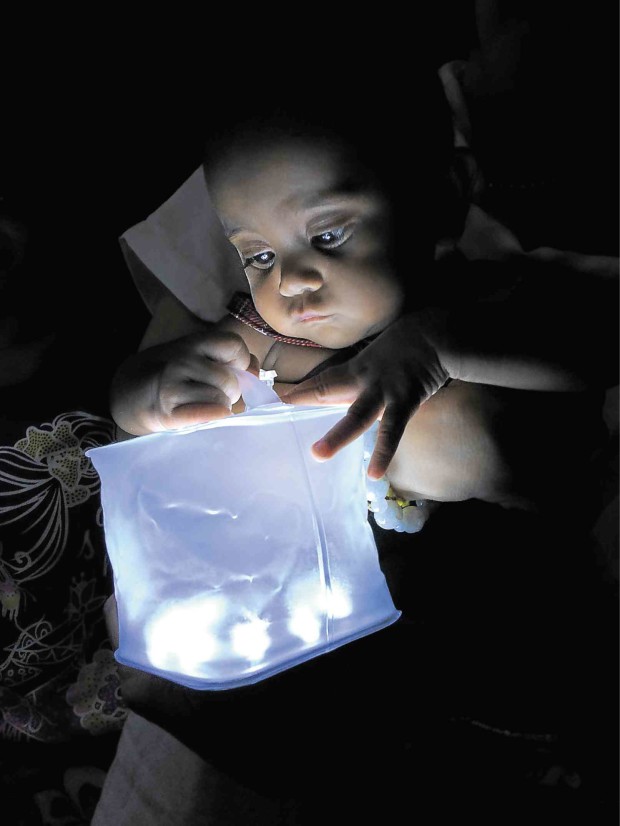
AETAS without electricity get solar lanterns from an Italian group that advocates the right of everyone to have access to light. The lanterns are inflatable, made of plastic and waterproof. TONETTE T. OREJAS/INQUIRER CENTRAL LUZON
ANGELES CITY—Solar lanterns have illuminated the houses of 20 Aeta families in Porac town, thanks to two Italians whose advocacy is to make sure that “everyone has a right to light.”
The lanterns, designed and manufactured by the firm, Sunny Sonny Story, were handed out at the Holy Angel University on Friday here.
“We now have light in our house,” said Beatriz Garcia after Sunny Sonny Story president Luca Vezzaro and Italian Chamber of Commerce in the Philippines president Sergio Boero taught her how to switch on the lanterns.
Garcia has literally lived her life in the dark because electricity has not been available where she lives in Sitio Pidpid in the upland village of Sapang Uwak.
The solar lanterns, slightly bigger than a coffee mug, are inflatable, made of plastic, waterproof and child-friendly.
The lanterns can be placed under the sun for 6 to 8 hours to charge. These could last up to three years.
Vezzaro said he convinced Boero to help in the social enterprise six months ago by designing the lantern. Both men were familiar with the problem, having done volunteer work in poor communities.
Vezzaro has worked in the Philippines for 20 years, while Boero has spent time in poor communities for eight years.
The absence of direct access to electricity stirred up some measure of anger in Vezzaro, who said, “I love this country more than my own.”
They are working to obtain United Nations accreditation
so their originally designed lantern could be endorsed for use during emergencies and disasters.
The solar-powered lanterns are affordable, sold for P320 to P470 each, with 10 percent of the sale to be set aside to subsidize their distribution to indigent families.
The two are developing a solar-powered floater (salbabida). They are in talks with companies undertaking corporate social responsibility projects and with nongovernment organizations.